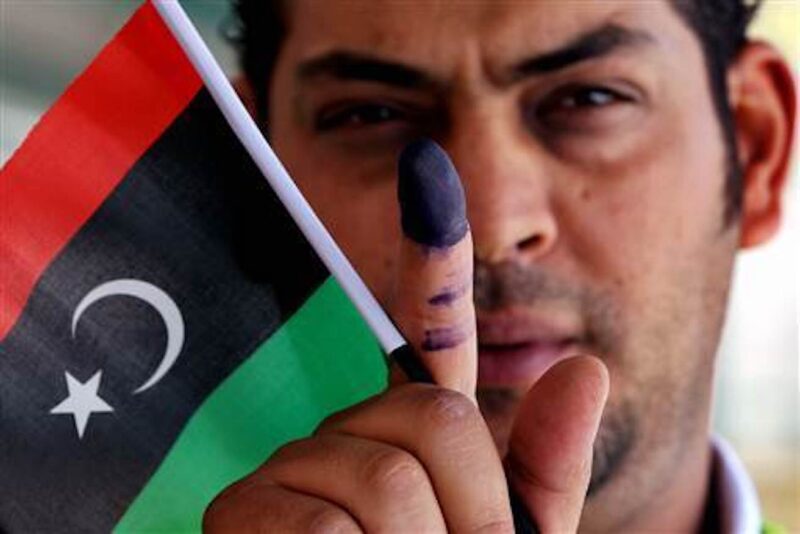Libya’s UN envoy announces new election initiative for 2023
Proposed mechanism will bring together ‘all relevant Libyan stakeholders,’ says Abdoulaye Bahily

In his briefing on Monday at the Security Council, UN envoy Abdoulaye Bathily said he had decided to launch an initiative aimed at enabling the organisation and holding of presidential and legislative elections in 2023. He said he would establish a High-level Steering Panel for Libya for this purpose.
As part of the proposed mechanism, Bathily said, all relevant Libyan stakeholders, such as representatives of political institutions, major political figures, tribal leaders, civil society organizations, security actors, and women, will be brought together.
“In addition to the facilitation of the adoption of the legal framework and time-bound roadmap to the holding of elections in 2023, the proposed Panel will also provide a platform to advance consensus around related matters, such as election security and the adoption of a Code of Conduct for all candidates.” He added.
He said the House of Representatives adopted the 13th Constitutional Amendment to the 2011 Constitutional Declaration, which was published in the Official Gazette and the amendment was yet to be endorsed by the High State Council, adding that despite repeated attempts by the Speaker of the House of Representatives and the Head of the High State Council and their delegations to agree on a constitutional basis for elections, disagreements persist.
“The 13th Constitutional amendment is controversial within the Libyan political class and general citizenry. Moreover, it does not address key contentious issues such as the eligibility criteria for presidential candidates, does not stipulate a clear road map and timelines to realize inclusive elections in 2023, and adds additional contentious issues such as the regional representation in the Senate.” He said.
In an effort to expand the scope of his consultations, Bathily said he undertook, again after his first December tour in the region, a new tour of regions and also European capitals and met with partners in Algiers, Tunis, Brazzaville, Rabat, Rome, Cairo, Paris, London, Berlin, Moscow and Washington. He consulted with the Deputy Permanent Representative of China. He shared my concerns about the current state of the political process and stressed the need to put an end to the repeated transitional arrangements, which only serve the interests of the proponents of the status quo.
Bathily also said he had encouraged all his interlocutors to speak with one voice and recalled that their respective interests could only be met through a peaceful, stable and prosperous Libya, reporting to the Security Council that by and large, all regional and international partners agreed on the necessity to hold inclusive and transparent elections in 2023.
On the economic track, management of the country’s resources remains a serious concern for all Libyans, Bathily said, adding that the use of Libya’s resources particularly prioritization of expenditures, continued lack of basic services, the absence of accountability, and demands for equitable distribution of resources need to be fully addressed.
He said he reiterated the importance, and urgency, of establishing a Libyan-led mechanism that brings together stakeholders from across the country to agree on spending priorities and ensure that oil and gas revenues are managed in a transparent and equitable manner, in line with Security Council Resolution 2656.
“Central Bank reunification and reform are also key to maintaining accountability and promoting the economic welfare of the country.
To this end, the co-chairs of the Economic Working Group of the Berlin International Follow-up Committee continue to engage with Libyan institutions to advance discussions on an agreement for a temporary expenditure and oversight mechanism. To achieve sustainable progress, advancing the economic track must remain an integral part of the political dialogue with Libyan stakeholders and the Libyan people.” Bathily said.
“On 7 and 8 February, I chaired a two-day meeting in Cairo bringing together the 5+5 JMC and the Liaison Committees of Libya, Sudan, and Niger. With the support of UNSMIL advisors, participants developed and endorsed an integrated mechanism for joint coordination and information exchange between the three countries, to facilitate the process of withdrawal of mercenaries and foreign fighters. I am planning to conduct visits to these two neighboring countries and Chad, which was not able to attend the last meeting, to discuss and encourage their authorities to further support implementation of the action plan for withdrawal of foreign fighters and mercenaries.” He added.
How to submit an Op-Ed: Libyan Express accepts opinion articles on a wide range of topics. Submissions may be sent to oped@libyanexpress.com. Please include ‘Op-Ed’ in the subject line.
- HoR-Backed Government moves to end fuel subsidy - December 26, 2024
- Libya and Algeria bolster customs cooperation - December 24, 2024
- Reports claim S-400, S-300 missiles moved to Libya - December 24, 2024


